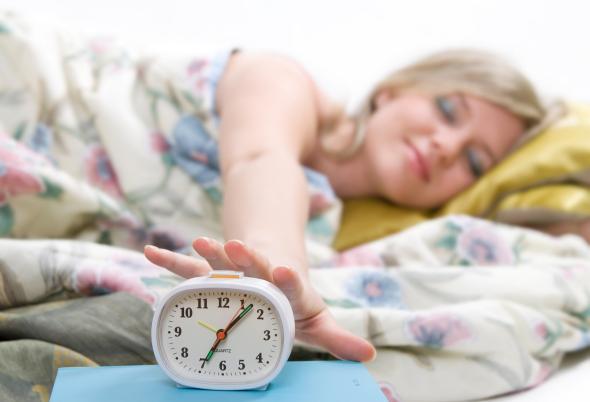The history of the alarm clock begins when the Industrial Revolution shackled workers to the factory’s workday schedule. Since then, alarms remained fairly constant as a device—until they jumped to our phones. A 2014 survey of 2,000 Brits commissioned by a taxi-hailing app found the alarm to be the fifth most common use for cellphones, just below internet use and just above phone calls. Say what you will about smartphone alarms; they have led to a lot of inventiveness over how best to emerge from slumber. But one element of the traditional alarm clock has remained in place: the snooze button.
It’s not clear exactly what led to the invention of the snooze function in the 1950s, but it’s easy to see why it would have been appealing: snoozing feels good. Part of it is the luxurious experience of waking up and realizing you can sleep a little longer. But it’s also about temperature. Rafael Pelayo, a sleep specialist at the Stanford University Sleep Medicine Center, told the Huffington Post that in the couple hours before you should naturally wake up, your body starts raising your core temperature. If you aren’t getting enough sleep, your alarm will likely rouse you from sleep too early in the process, making your bed seem irresistibly cozy.
Given that the snooze button is a firm part of our morning culture, it’s easy to see why we carried it into the smartphone era. But was it a wise decision? Should you push that button?
Probably not. First, there’s the obvious: Fragmented sleep is not ideal, so you’ll lose out on restful sleep with all that snoozing. But the snooze function also will inevitably make getting into a healthy routine harder. Dan Ariely, a professor of psychology and behavioral economics at Duke wrote in the Wall Street Journal that snoozing can ruin the connection between stimulus (your alarm going off) and response (you getting up) that you need for behavioral conditioning. If you were to start rising at your first alarm, Ariely says, it would eventually become an automatic response, sans struggle.
And that struggle can have lasting effects on your day, through something called sleep inertia-grogginess that can leave you weak and struggling to perform even basic tasks. Studies have found sleep inertia can take two to four hours to shake, even when you feel fully alert.
Robert Rosenberg, the medical director of the Sleep Disorders Center of Prescott Valley and Flagstaff, Arizona, told Business Insider that if you doze after your first alarm, your body gears up for another full cycle of sleep. When the second alarm jerks you awake during the beginning of your next sleep cycle, that incomplete cycle can leave you with worse sleep inertia.
It’s not all bad news for snoozers, though. Jeanne Duffy, a neuroscientist and sleep researcher at Harvard Medical School, told Popular Science that there are some instances in which your first alarm wakes you in the deepest phase of sleep, leaving you disoriented. In that case, ten more minutes of snoozing could allow you to wake up more gently from a lighter phase in your sleep cycle.
But here’s the catch: You can’t really tell what phase of sleep you were on. So sleep science experts recommend that you stick with the safer option and resist the snooze button. Learning to get up at your first alarm will soften the misery of waking up early, but it won’t make for a totally painless morning. For that, you just need more sleep.
